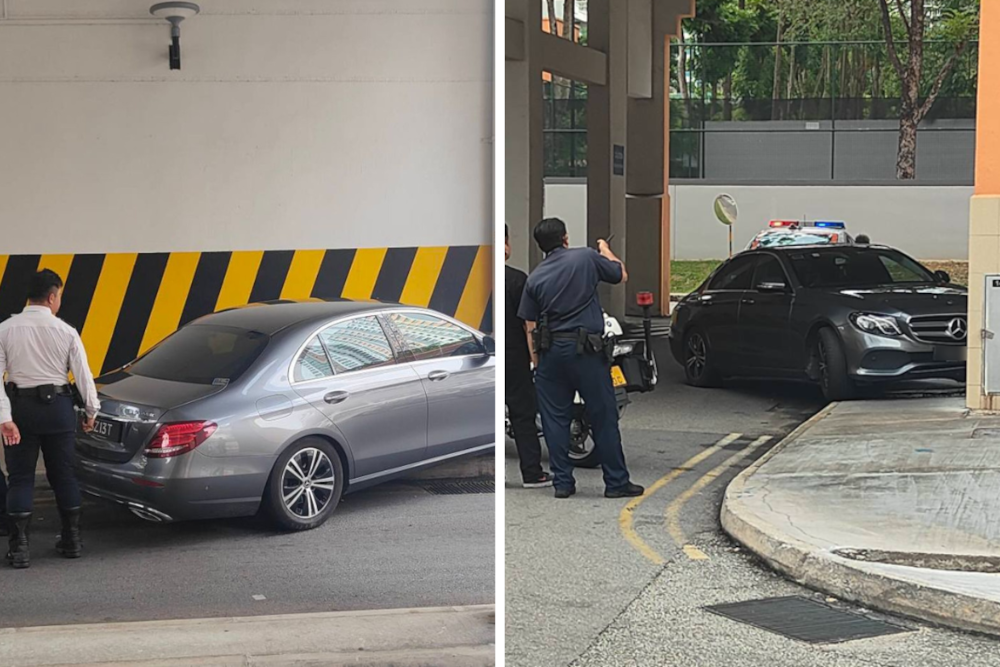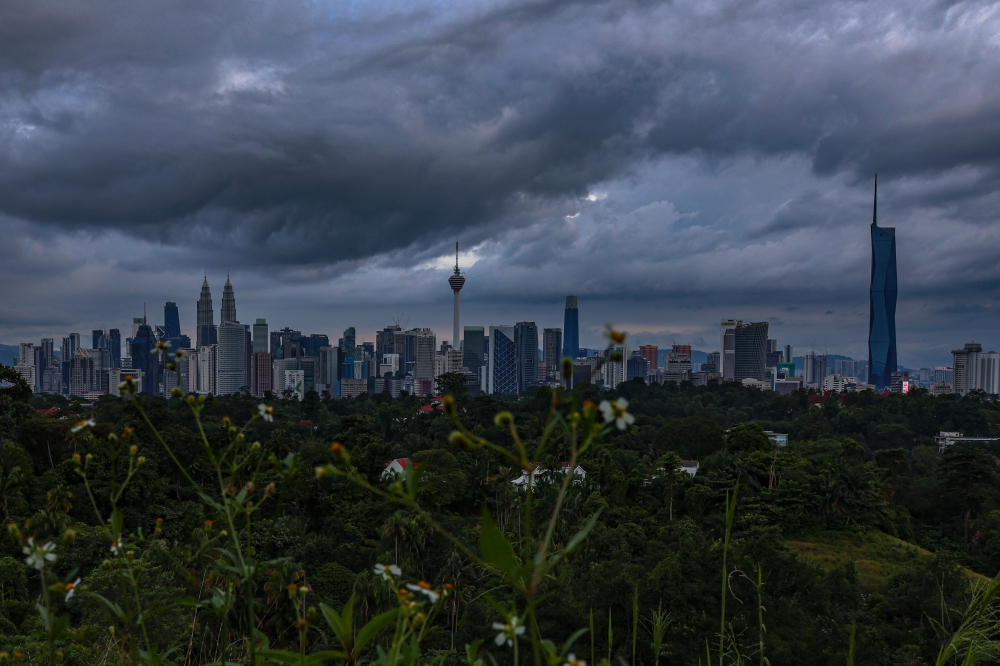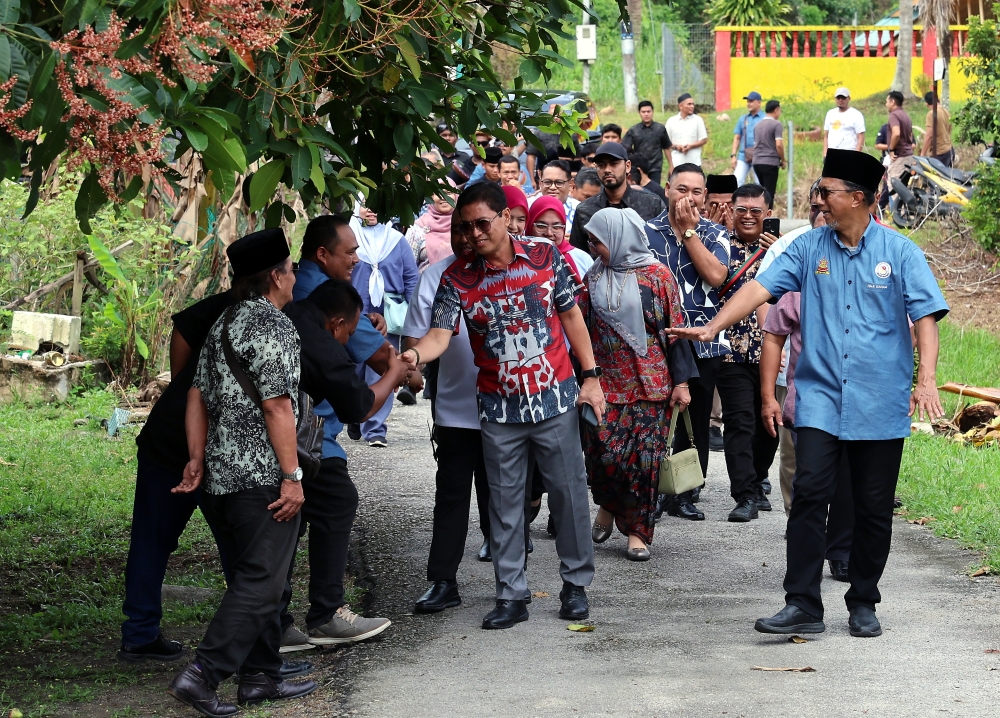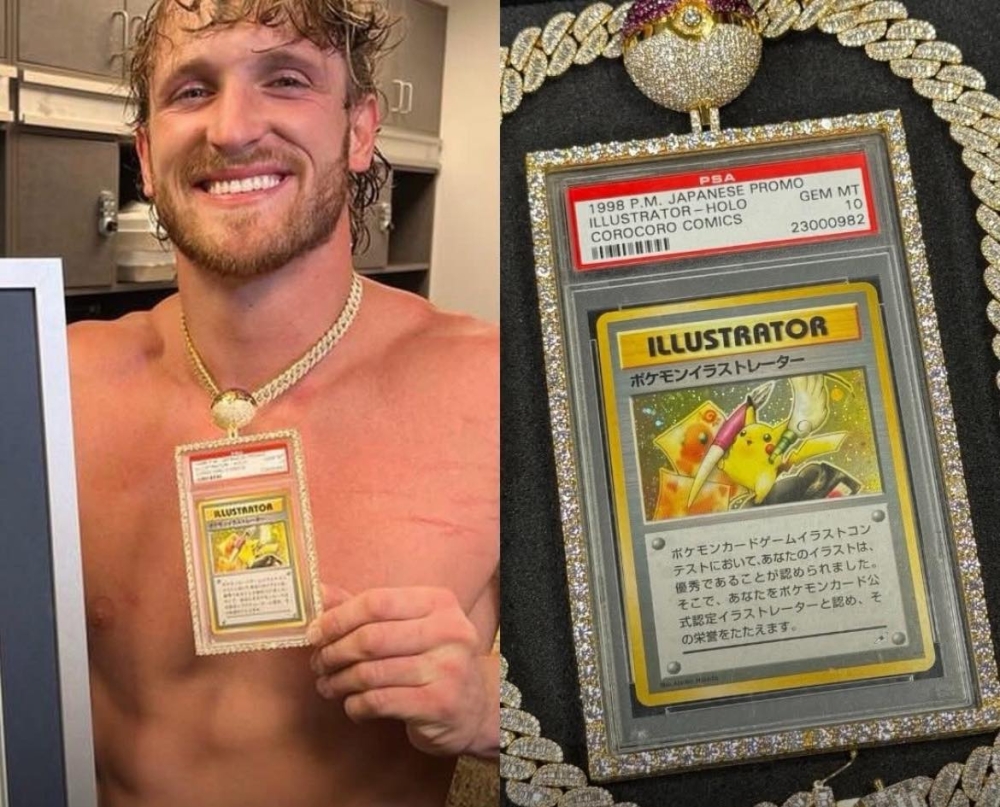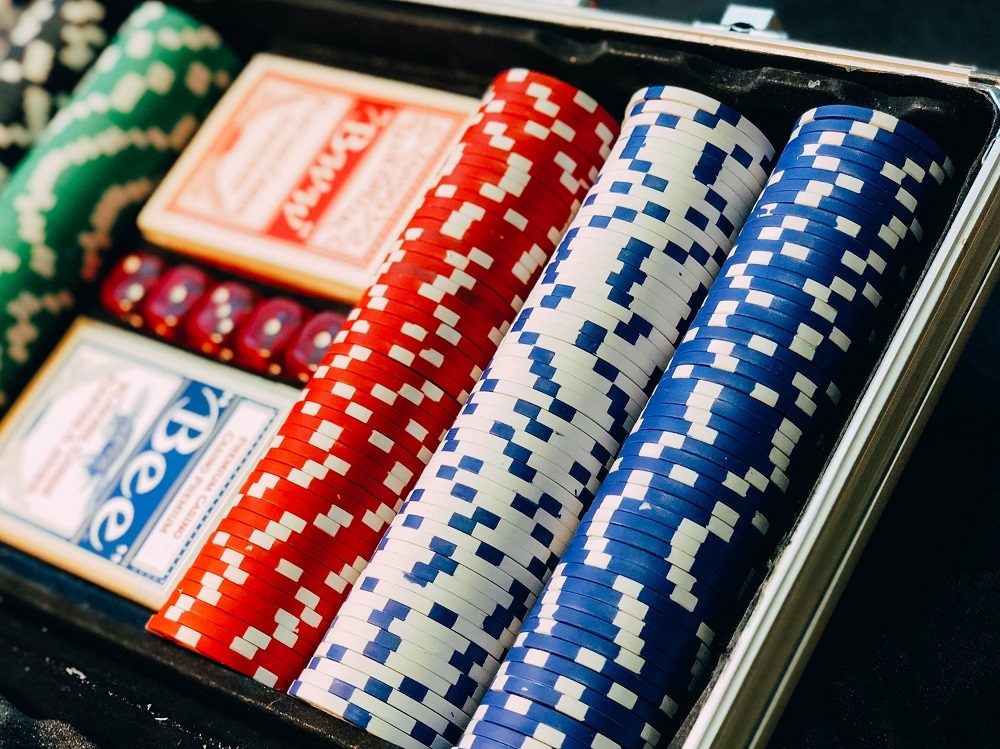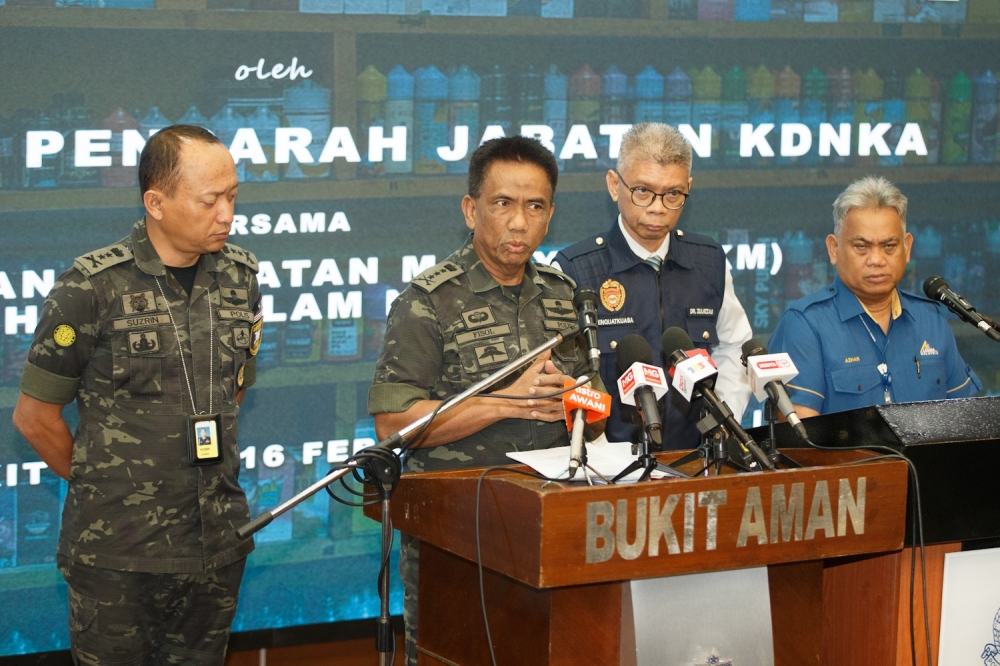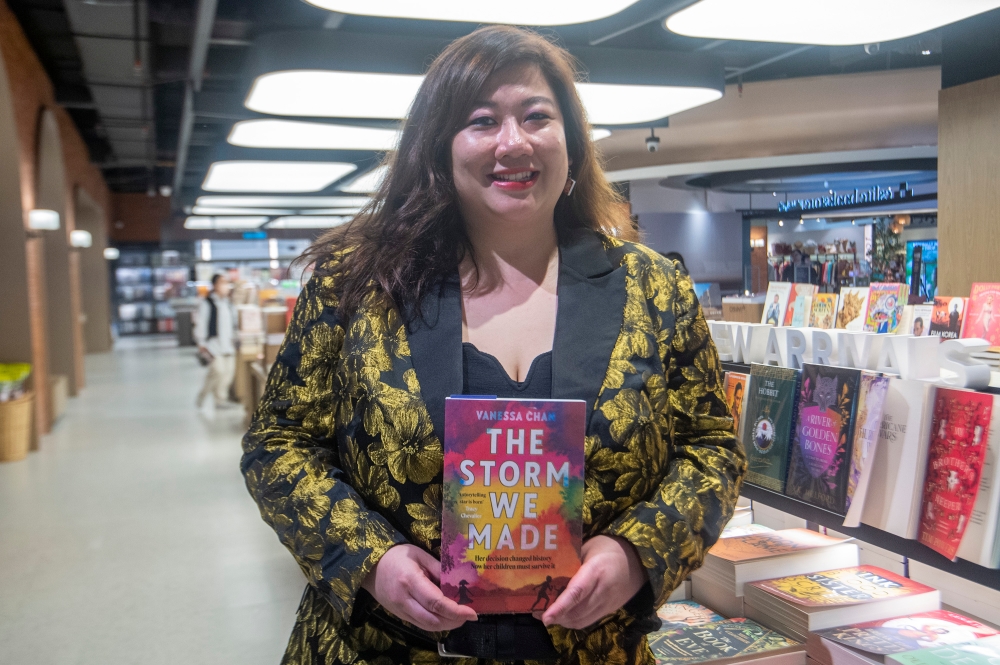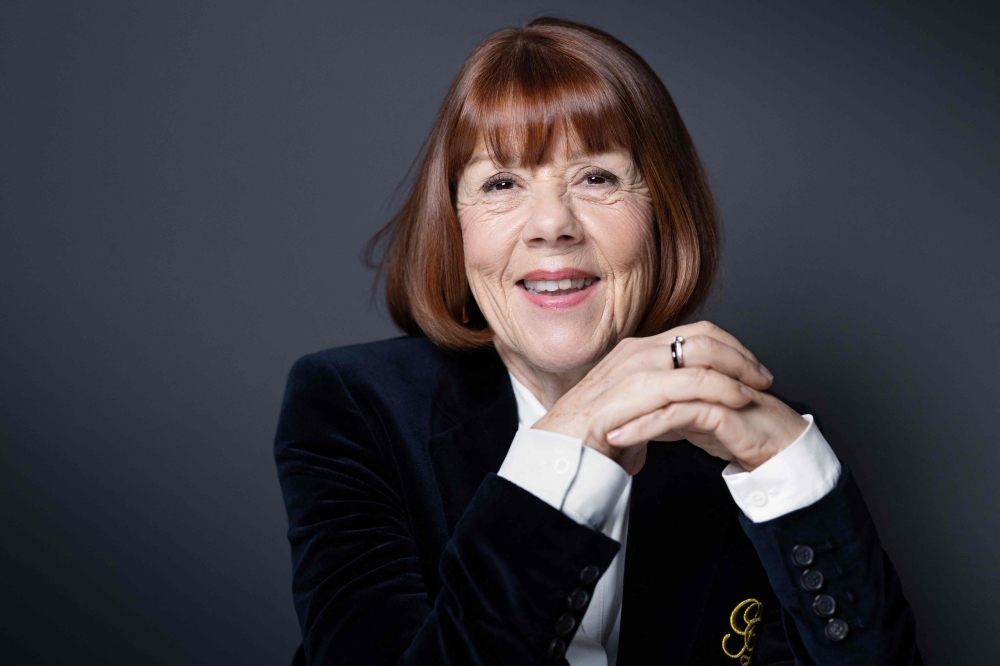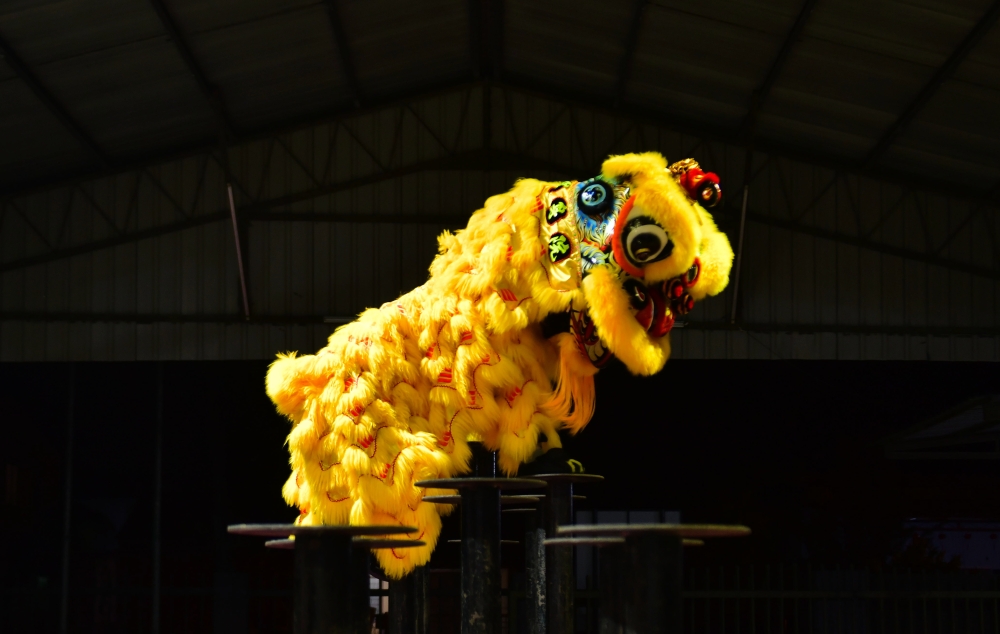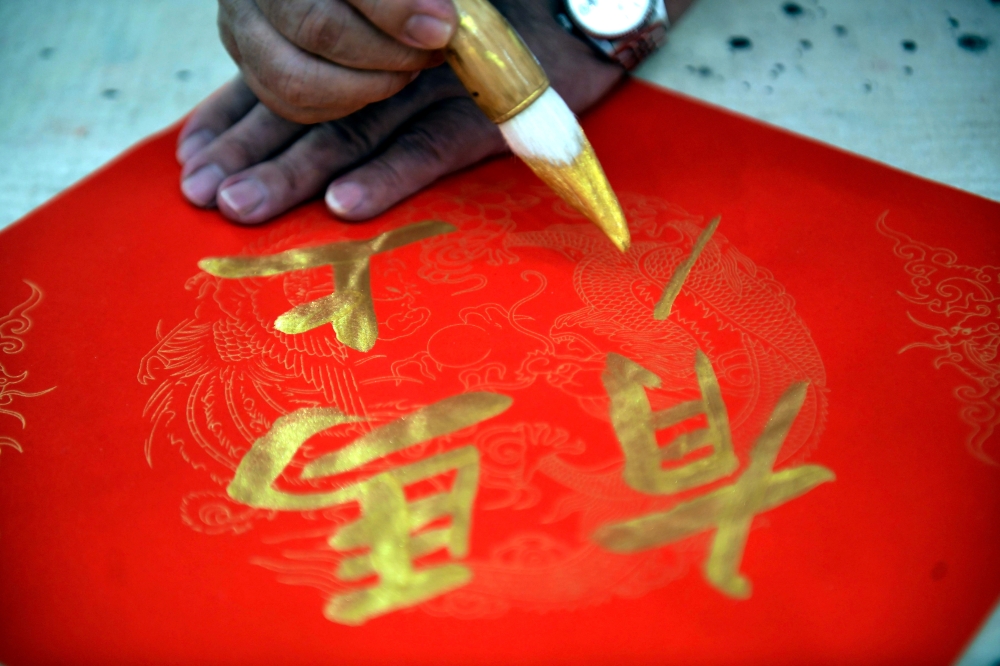KUALA LUMPUR, March 24 — I joked with Vanessa Chan that she is probably the only author — both local AND foreign — who has received so much press on her return to Malaysia for her book tour as well as to visit family.
After all, this Petaling Jaya born and bred may now be based in New York but this is tanah air. Home.
By now — even if you are not an avid reader — you’d have heard of Chan and her debut novel The Storm We Made which came out with a bang in January as a Good Morning America Book Club pick.
It was also a BBC Radio 2 Book Club pick and the book is a national bestseller in the US.
You’d also have read or heard the book was acquired by international publishers in a flurry of auctions. And yes, that is a BIG deal.
Before she came home the third week of February, she had already travelled to several American cities to meet readers and do publicity for the book.
So it made me very curious to know what that was like for her. Meeting all these different people who probably never even heard about Malaysia, much less know its history. And then returning home to meet fellow Malaysians.
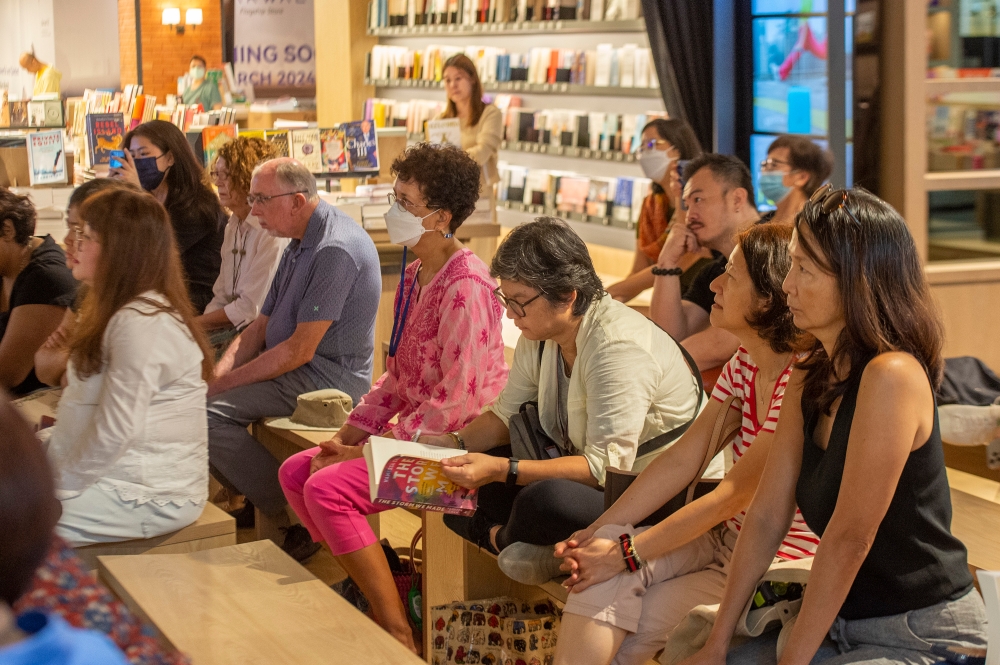
(The Storm We Made is the story of a Eurasian housewife who becomes a spy for the Japanese and sets in motion the occupation of Malaya by the Japanese in 1941. The book is told from four points of view — Cecily and her three children — and in two timelines, British Malaya and the Japanese Occupation.)
“The best thing about being on tour in Malaysia is not having to explain basic historical facts, and seeing the vociferous nods when I talk about familiar stories we’ve all heard from our parents and grandparents.
“I did not realise how tiring it can be to constantly be explaining one’s existence, and what a relief it is to be in a place where what I know and who I am, is simply the norm,” explained Chan.
In the US, Chan said she was sometimes asked why an American should read her book.
“A well-meaning potential reader I met at a conference once asked me to pitch her. ‘Can you tell me why I, as an American, would be interested in reading your book about Malaysian history?’
“To which I recall saying something along the lines of how I — and other readers not in the West — have read and enjoyed books about boarding schools in Cornwall, detectives solving crimes in moors, American teenagers slamming shut locker doors in high school... none of which were ever ‘relevant’ experiences to my life. But these books helped me travel and see the world and I would hope reading about Malaya would help her do the same.”
I got a first-hand look at her readers last weekend when I moderated the last leg of Chan’s Malaysia book tour at Eslite Spectrum Kuala Lumpur in Starhill.
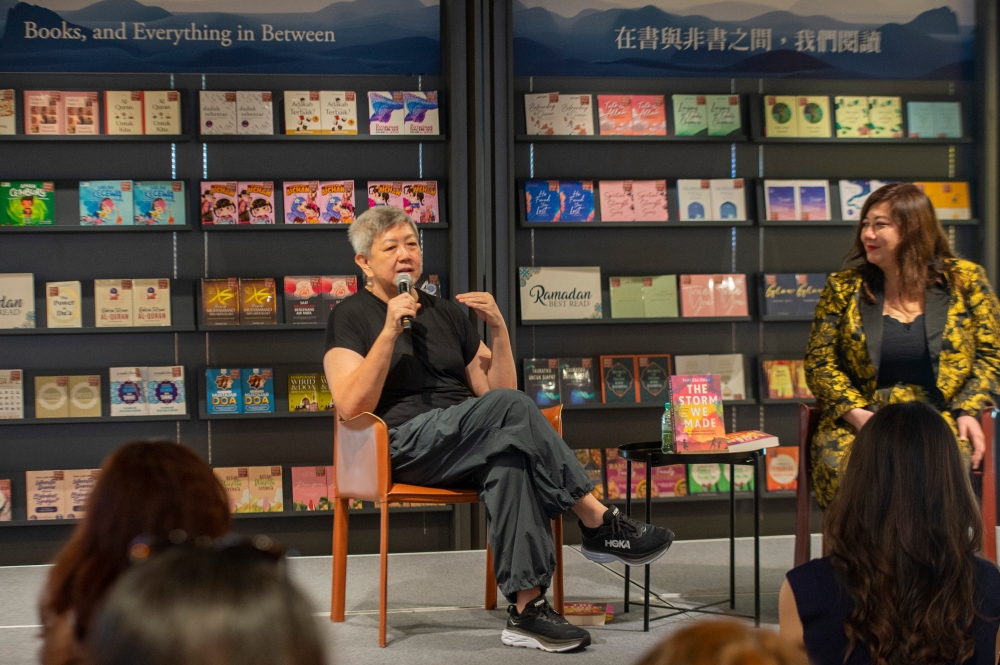
It was interesting looking out at all those faces — both young and old (more on the importance of this later) — waiting to hear from the author of the book they had read (and obviously liked) and eager to ask her questions.
After all, it is not every day you get to ask a burning question that has been bugging you.
One such reader wanted to know why in that very small town where the story is set, the family of a young missing child could not find her.
The child was last seen in a chemist talking to and leaving with a prominent member of the community.
Chan laughed and admitted the detail had simply been ignored in service to the story.
Many other questions followed about research, why the focus was on these four characters, whether she was personally familiar with female rage which is prominently displayed in the book and so on.
Chan made a joke about the last saying all women are familiar with female rage. To which every woman in the audience nodded.
It was also obvious from the questions by younger Malaysians that they did not know much about the Japanese Occupation while the older ones were familiar with the stories of torture, comfort women, the rape of young girls, the POW camps.
This led to questions about research for the book and Chan’s comment that she was nervous about the book’s reception in Malaysia because readers will be quick to spot historical and other inaccuracies.
So far, nobody has called her out on that and for me as a reader it was one of the strong points... she nailed it with her details like the use of enamel plates, Horlicks, ants and longkangs.
Chan said it was her father who helped her fact check many things and the stories gleaned from conversations with her grandmother which provided some historical details.
“In the book I mentioned an anecdote about how to avoid getting hit by bombs from planes... that you cannot stand up once the planes have passed, you have to wait till they are completely gone because the bombs drop off the planes’ tails at an angle.
“That was something my grandmother mentioned one day as a throwaway statement and it stuck with me. Here I was a teenager and my biggest concern was learning how to plait my hair and here she was explaining that as a teen she learned how to survive a war.”
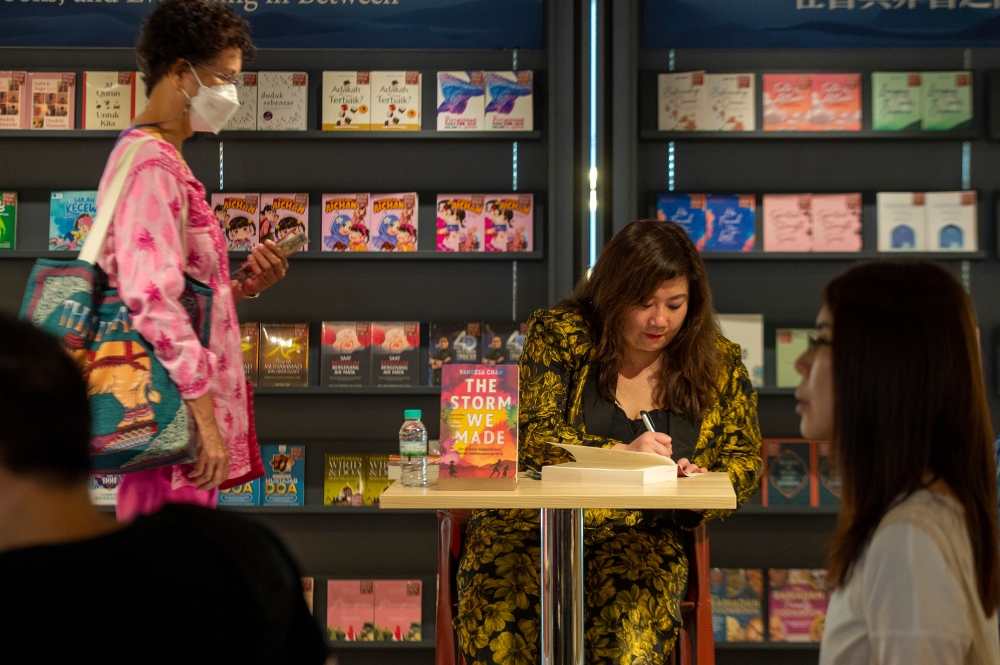
Before the event last Sunday, I saw a reader give her something and later found out from Chan this happens quite often.
Apart from asking her to pose for a photograph or signing her book, many people in the US and here give her things: bookmarks, baby onesies (?), a hair clip, baked goods and one time a Ziploc bag of a definitely illicit substance!
People also share stories about their families and whatever stresses they are experiencing with her during her signings. (I think this is definitely testament to her ability to connect with people during her events.)
So, has any of these “connections” made an impact on her?
“One of my favourites is someone who said that after reading The Storm We Made she started asking her elderly father, during their daily walks, about his life during the war and the stories started pouring out. That made me emotional.
“Another time someone told me that her grand uncle made munitions for the British during the war and was summoned to Asia in order to study how to adjust these munitions to fight the Japanese.”
So read the book if you haven’t... you just might find out something “new” about your own country and family.








